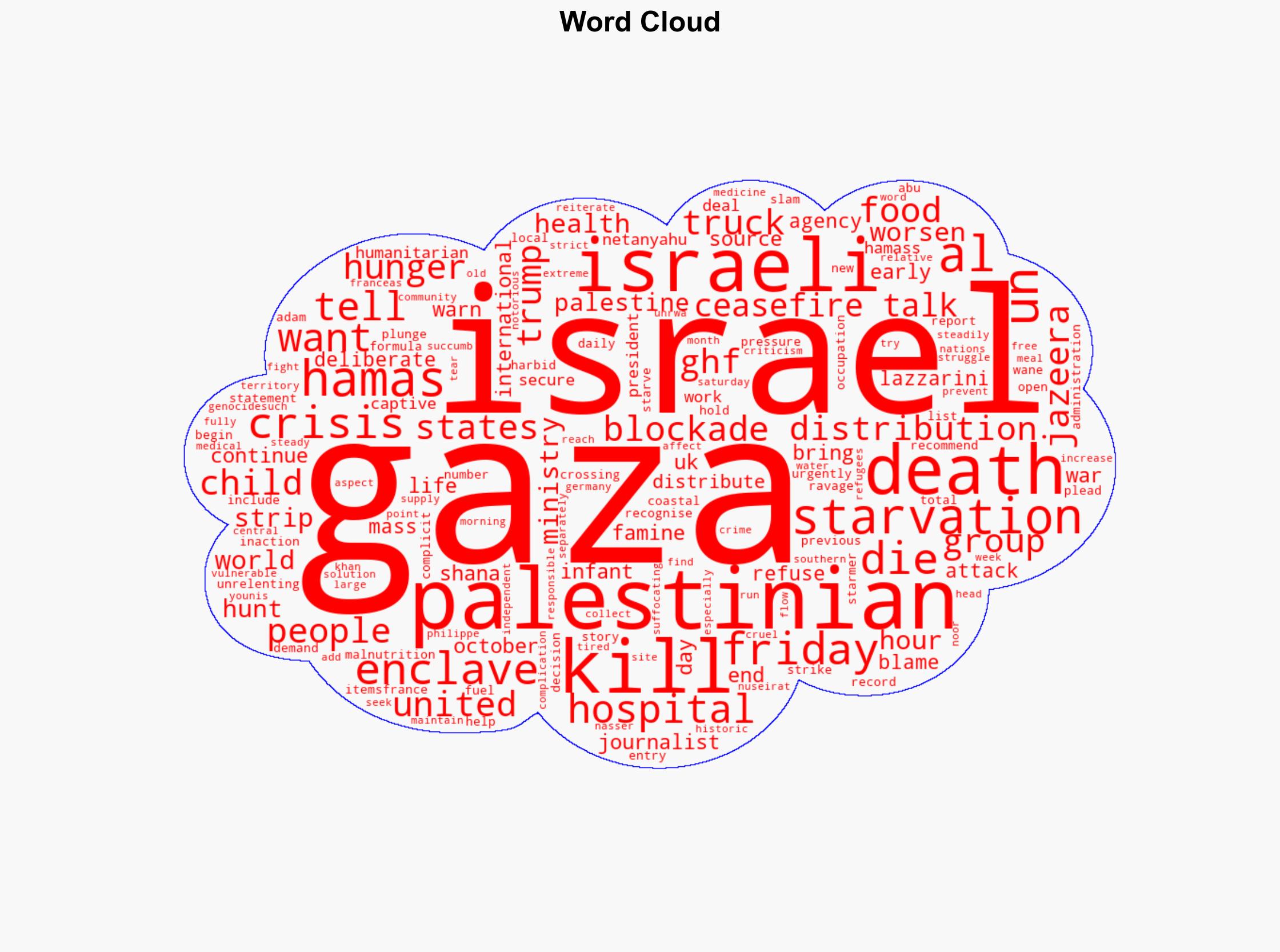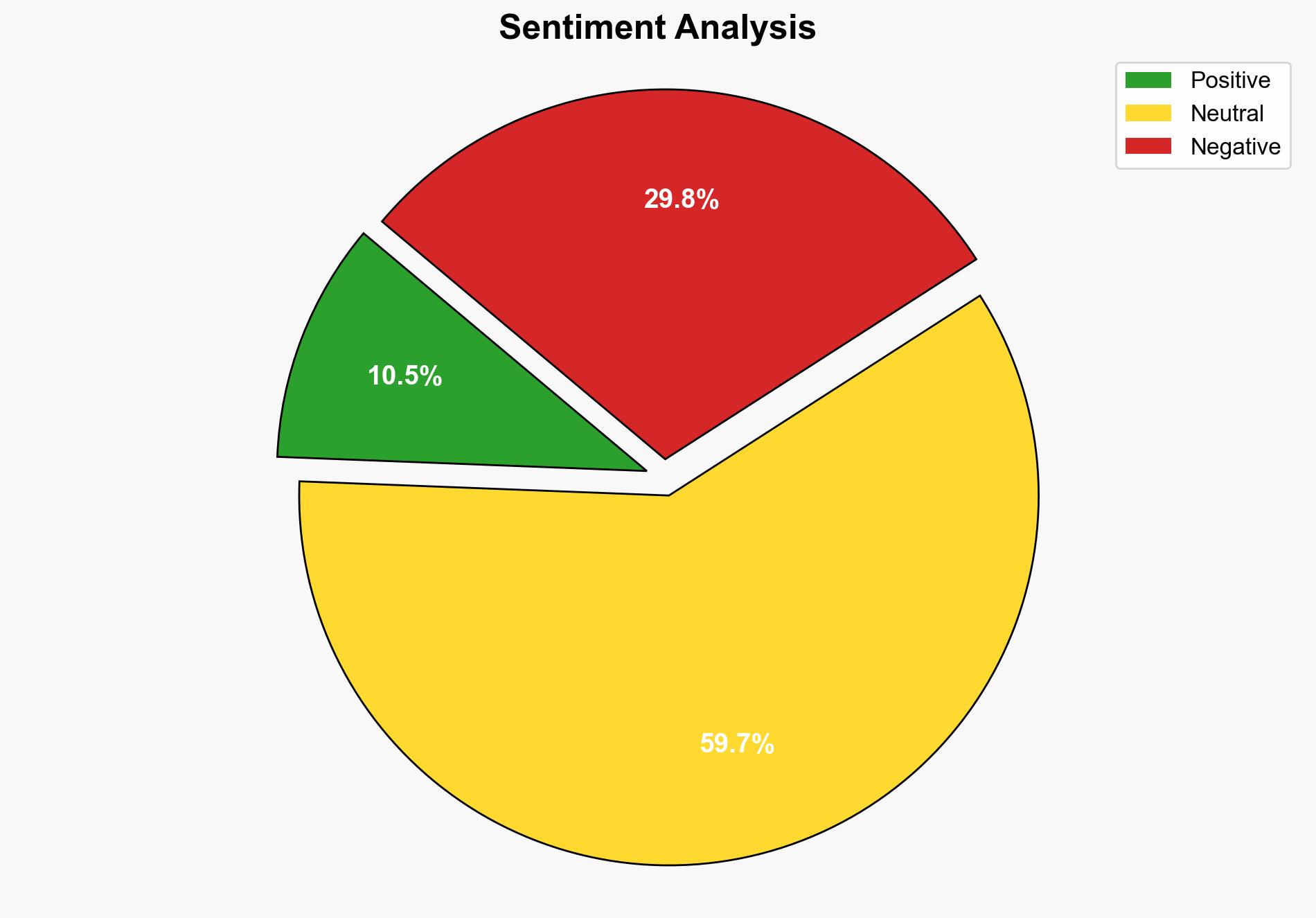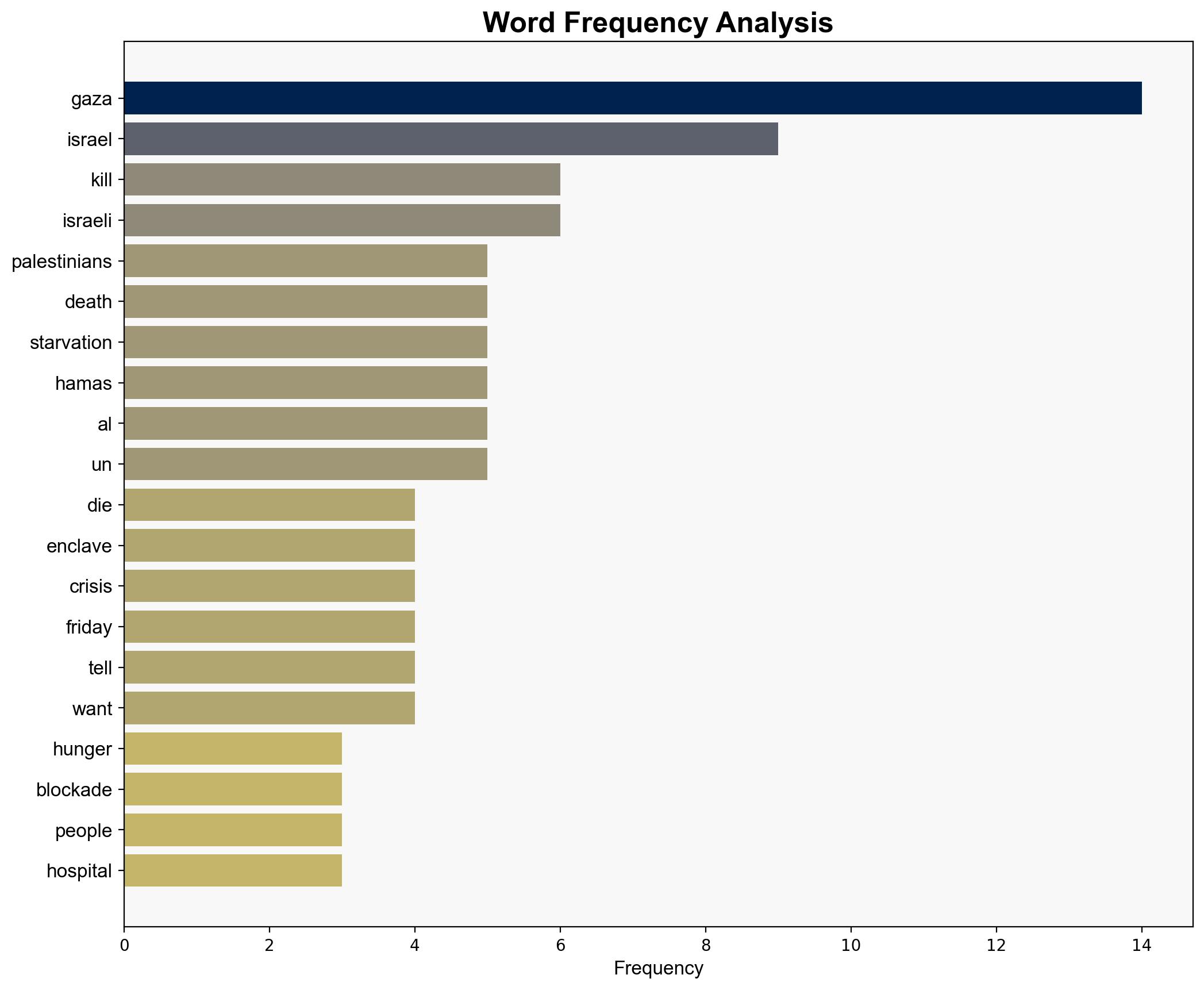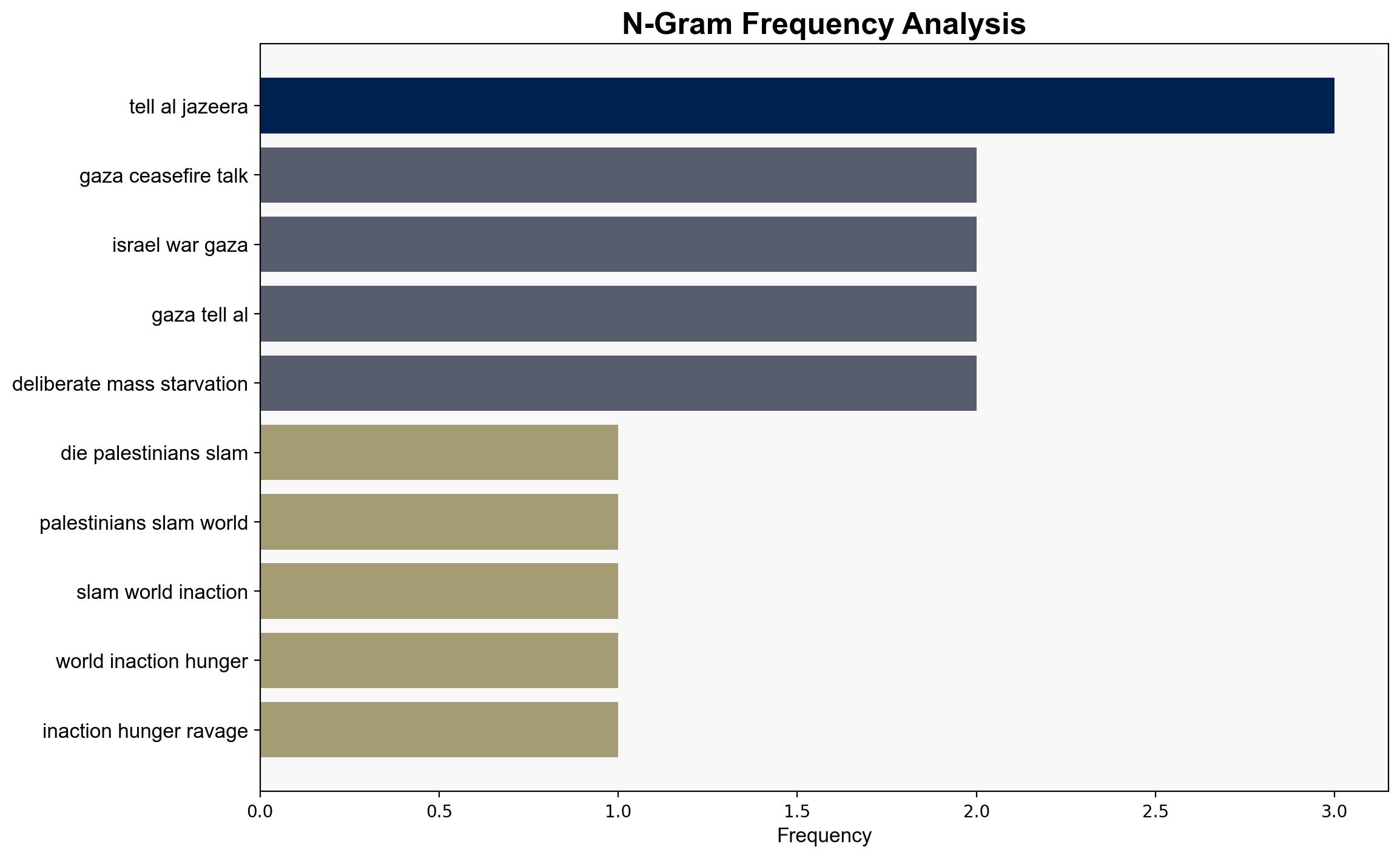We are dying Palestinians slam worlds inaction as hunger ravages Gaza – Al Jazeera English
Published on: 2025-07-25
Intelligence Report: We are dying Palestinians slam worlds inaction as hunger ravages Gaza – Al Jazeera English
1. BLUF (Bottom Line Up Front)
The ongoing humanitarian crisis in Gaza, exacerbated by an Israeli blockade, is leading to severe malnutrition and starvation. Two primary hypotheses emerge: (1) The crisis is a result of deliberate political strategy by Israel to weaken Hamas and control Gaza, and (2) The crisis is primarily due to logistical and political failures by international actors to effectively mediate and provide humanitarian aid. The first hypothesis is better supported by the evidence, given the consistent reports of blockade enforcement and the lack of effective international intervention. Confidence level: Moderate. Recommended action: Increase diplomatic pressure on Israel and international bodies to facilitate humanitarian aid and negotiate a ceasefire.
2. Competing Hypotheses
1. **Deliberate Political Strategy by Israel**: The blockade is a strategic measure to weaken Hamas by creating humanitarian pressure within Gaza, thereby destabilizing the region and reducing Hamas’s influence.
2. **International Logistical and Political Failures**: The humanitarian crisis is primarily due to the inability of international organizations and governments to coordinate and deliver aid effectively, compounded by political disagreements and bureaucratic hurdles.
3. Key Assumptions and Red Flags
– **Assumptions**:
– Hypothesis 1 assumes Israel’s primary objective is to weaken Hamas through indirect means.
– Hypothesis 2 assumes international actors have the capacity but lack the coordination to address the crisis.
– **Red Flags**:
– Lack of direct evidence linking Israeli policy explicitly to a strategy of deliberate starvation.
– Inconsistent reports on the effectiveness and intentions of international aid efforts.
– **Blind Spots**:
– Potential underestimation of internal Palestinian political dynamics affecting the crisis.
– Limited visibility into closed-door international negotiations.
4. Implications and Strategic Risks
– **Humanitarian**: Continued blockade and inaction could lead to a severe humanitarian disaster, increasing malnutrition and mortality rates.
– **Geopolitical**: Escalation of tensions between Israel and neighboring countries, potentially drawing in regional and global powers.
– **Psychological**: Heightened despair and radicalization within Gaza, potentially increasing support for extremist groups.
– **Economic**: Long-term economic destabilization of Gaza, affecting regional trade and stability.
5. Recommendations and Outlook
- **Immediate Action**: Urge international bodies to negotiate humanitarian corridors and ensure the delivery of essential supplies.
- **Diplomatic Engagement**: Facilitate dialogue between Israel and Palestinian representatives to address underlying political issues.
- **Scenario Projections**:
– **Best Case**: Successful negotiation of a ceasefire and establishment of a sustainable aid delivery mechanism.
– **Worst Case**: Escalation into broader regional conflict, with severe humanitarian and geopolitical consequences.
– **Most Likely**: Continued stalemate with periodic escalations and limited aid reaching Gaza.
6. Key Individuals and Entities
– **Philippe Lazzarini**: Head of UNRWA, critical in coordinating international aid efforts.
– **Donald Trump**: Former U.S. President, whose statements influence U.S. policy and international perceptions.
– **Benjamin Netanyahu**: Israeli Prime Minister, central to decision-making regarding the blockade and military actions.
7. Thematic Tags
national security threats, humanitarian crisis, geopolitical strategy, Middle East conflict





